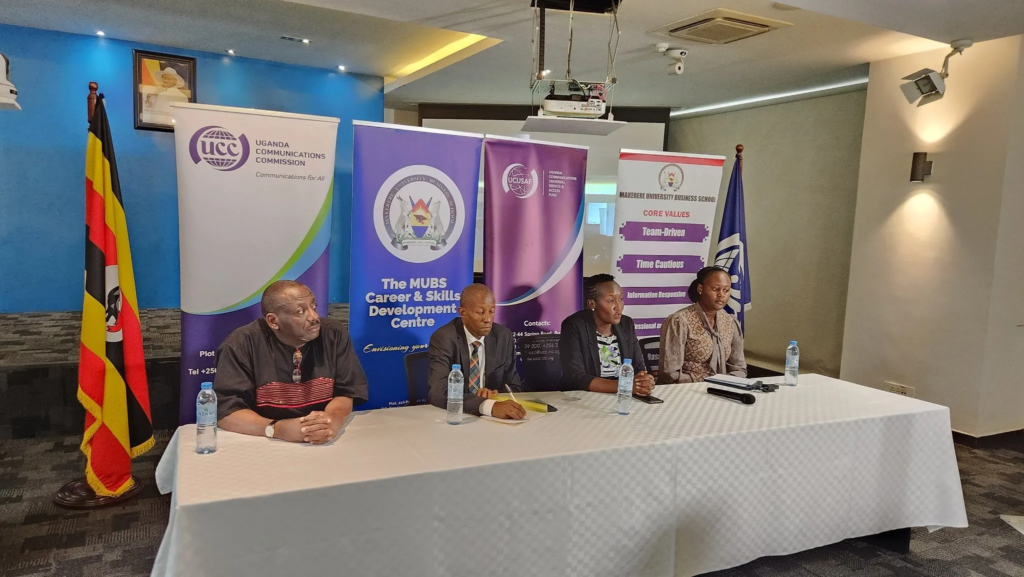
The Uganda Communications Commission (UCC), the country’s communications sector regulator has entered into a strategic partnership with Makerere University Business School (MUBS) to implement the e-booster program.
UCC said the project, signed on Monday June 26 at the UCC Bugolobi based headquarters seeks to leverage ICTs to provide connectivity solutions in unserved and underserved sectors of the economy.
MUBS which has been selected by the commission to implement the project will select eligible Ugandan companies with already developed solutions.
It also monitor mentor them and their ideas into scale innovations.
The UCC acting Executive Director Eng. Irene Kaggwa Sewankambo said project will be coordinated by the Uganda Communications Universal Services Access Fund (UCUSAF), a semi-autonomous Universal Service Fund managed and administered by the UCC.
She told reporters that the commission will continue to establish a fund to extend communication services to the unserved and underserved areas of Uganda.
EngIrene said the liberalisation of the Ugandan economy brought in investors who always flowed in the direction of the money.
However, she said the government of Uganda moved to address this situation by establishing a fund that is geared toward improving connectivity, access, affordability, and equity of ICT services among the population.
George William Nyombi Thembo, the Ag. Director of Industry Affairs and Content Development at UCC, said the key challenge faced by the application developers is the lack of business modules to back up their creations that will see them go to maturity and commercialization.
Prof. Moses Muhwezi, Makerere University Business School, said the educational institution is planning on placing its teaching staff in established organisations for internships.
“The aim is to have more practical knowledge to train the students,” said Muhwezi, who also emphasised the need for stronger collaborations between education institutions and other sectors to make substantial contributions to the global knowledge base.
All licensed telecom operators in the country are required to pay a statutory 2% levy on their annual gross revenues to UCUSAF to ensure the country achieves digital inclusion as envisioned in the Digital Vision 2040.
Officials say over the years, UCUSAF, formally RDCF has enabled the government to set up computer labs in about 1,300 secondary schools and give out about 4,000 mobile phones devices to vulnerable households






